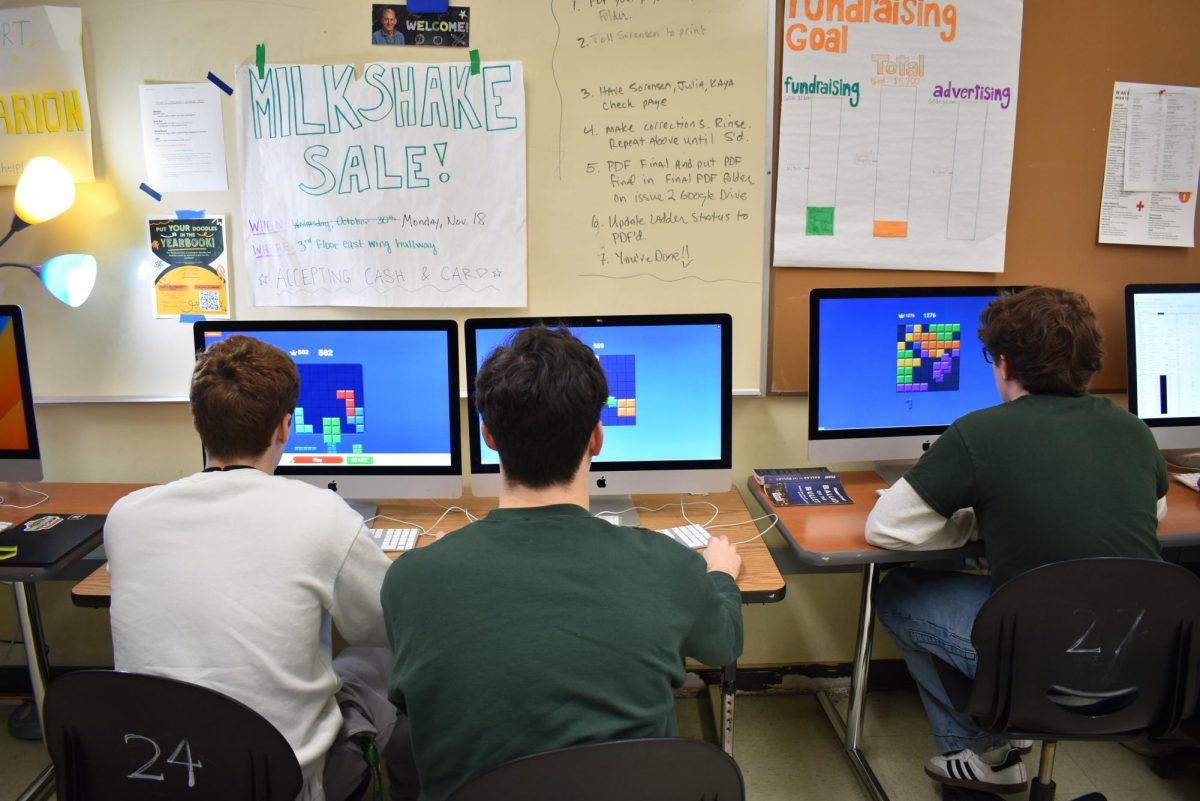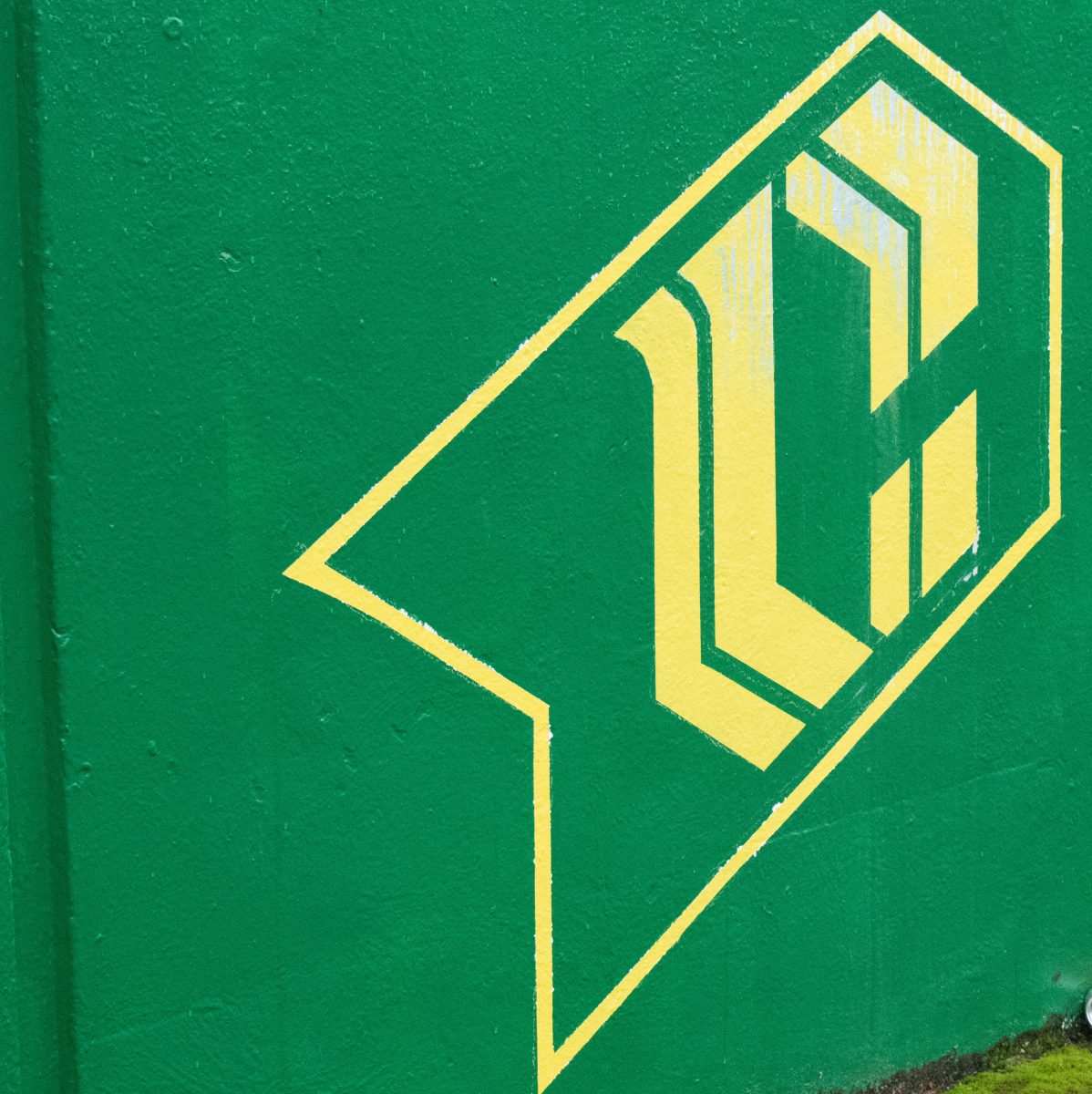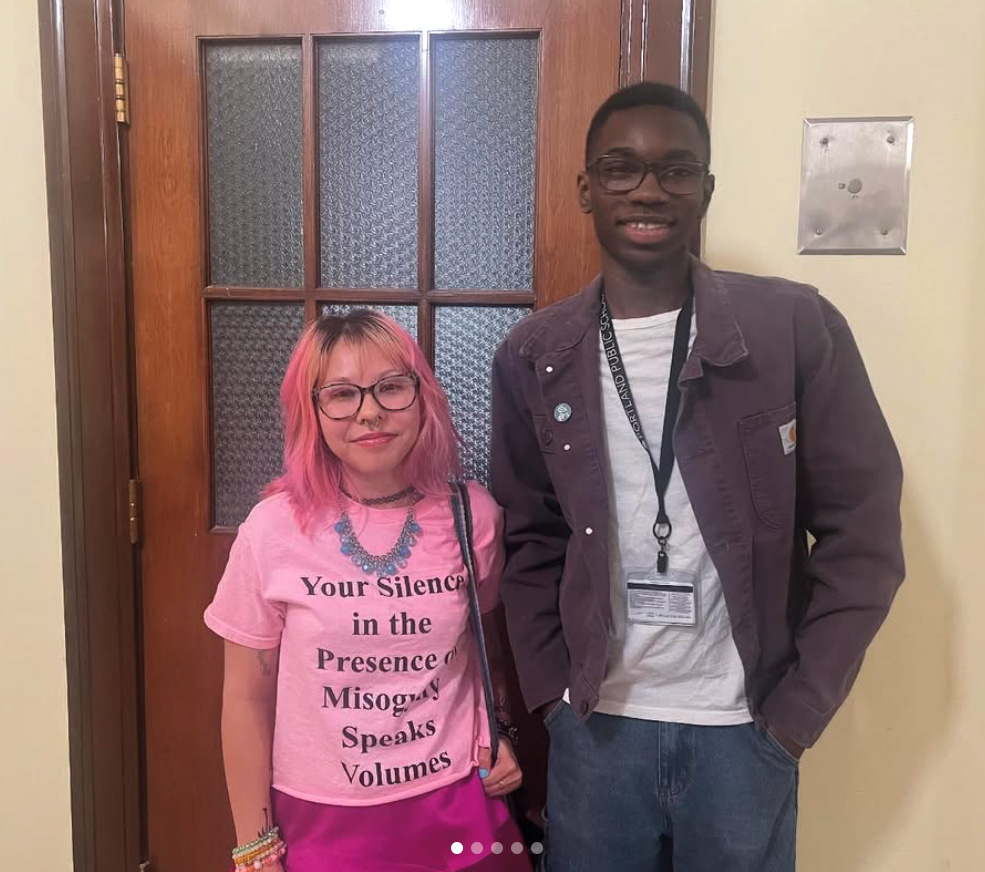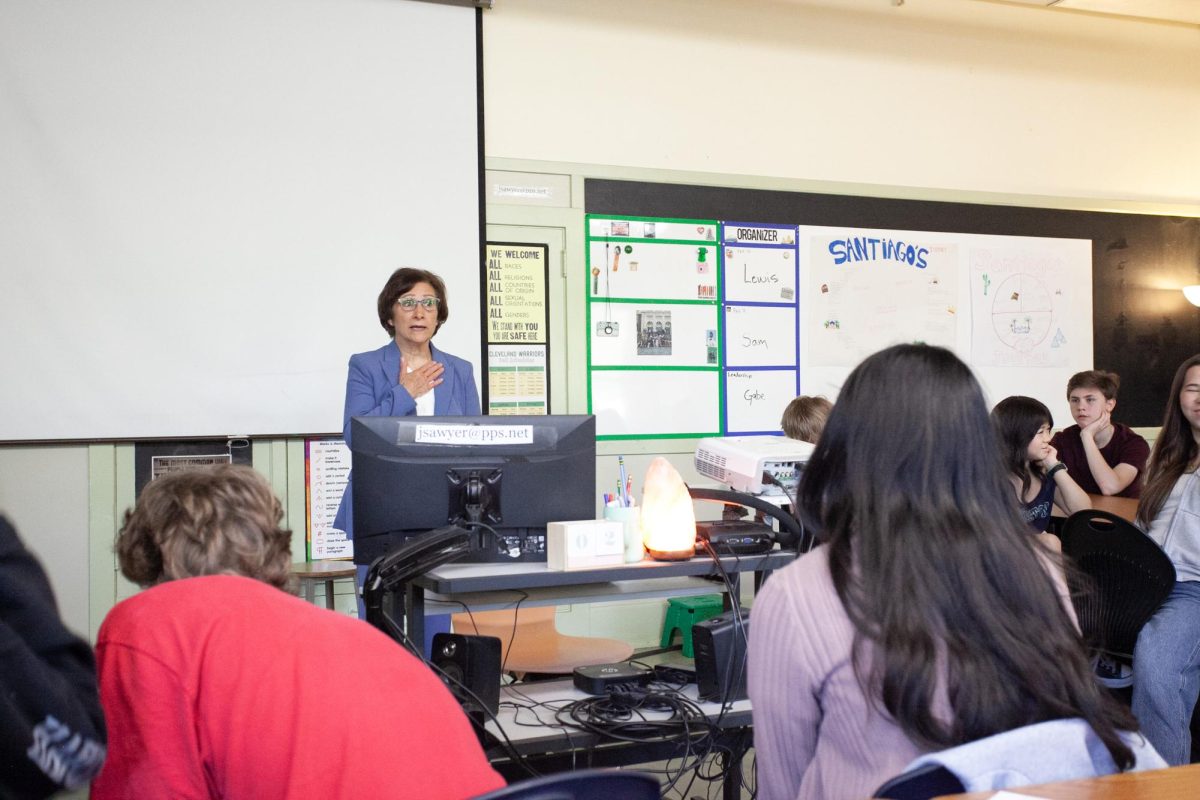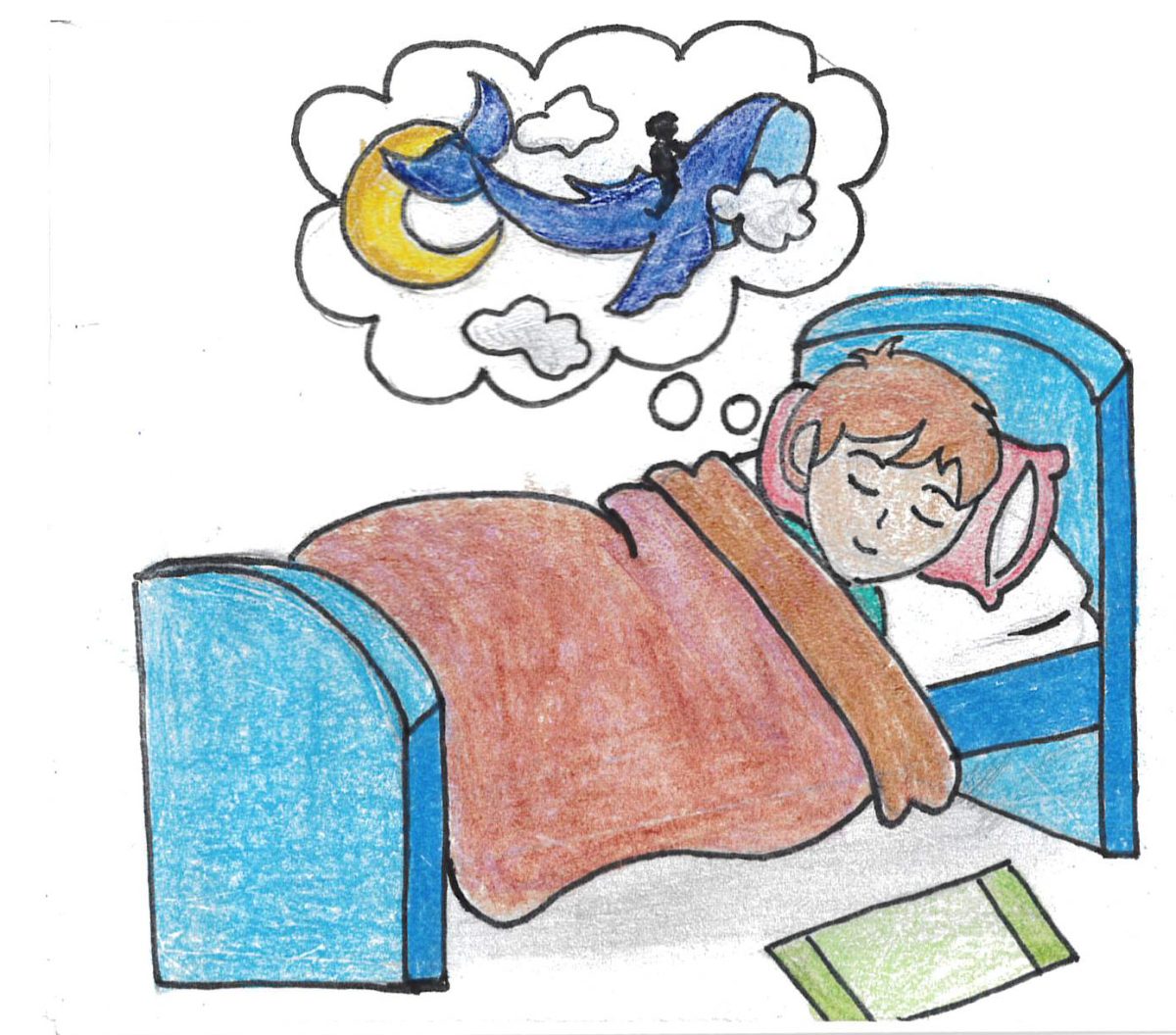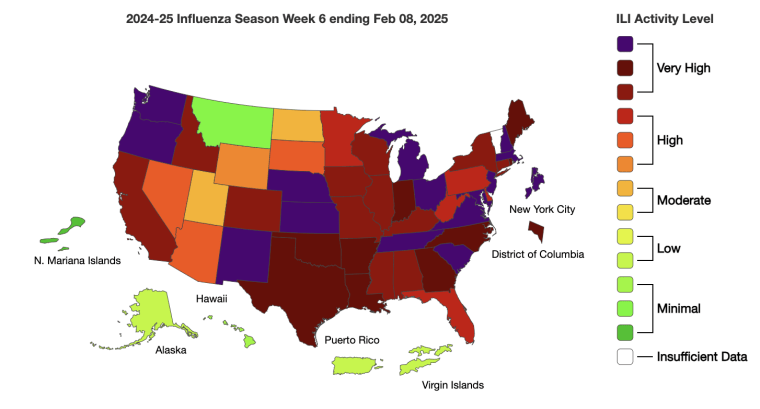Update: The Board has approved a district-wide cellphone policy. Students must turn off all personal electronic devices during school hours, including lunch periods. Schools are not required to use Yondr pouches, but the policy is now standing.
The PPS School Board held the first reading on Dec. 3 of a district-wide cellphone policy ban. The policy includes students of all grades, smartwatches, and other personal technology, and exempt students with extenuating health circumstances.
PPS Board Chair Eddie Wang proposed changing the currently standing “off and away” policy earlier in the year, which has been validated by Grant and Cleveland High School’s broad implementation of Yondr pouches.
Representatives and administrators from many schools across the district have agreed that the policy must be implemented district-wide to be successful, rather than leaving room for school-by-school modifications. The board indicates they will allow schools to use additional restrictive measures such as more severe disciplinary consequences, and extended hours of policy implementation. Governor Tina Kotek says she supports the statewide ban.
The main point of disagreement appeared to be whether to extend the policy through lunch. Student representatives and some board members voiced opposition to that extension because of safety concerns and modern youth culture, but ultimately, the board decided to include lunch in the standing “off and away” policy.
The district has relied on a recent study of 2,147 PPS students and the fact that 1,460 students support “off and away” policies. Additionally, according to a recent article from KGW, 677 said they prefer to keep phones face-down on their desks, 442 preferred to have their devices collected class by class. Only 110 students said they prefer using Yondr pouches (5.12% of surveyed youth).
At Cleveland, students are open to a district-wide phone policy that is slightly less strict or absolute than Yondr.
Senior Natalie Watts explained, “Ever since the phone policy has been introduced people do talk to each other a lot more. It’s created a lot more community rather than everybody just sitting on their phones in class, everybody’s talking to each other.”
However, some students share their concerns about a more strict phone policy.
“If they want to do Yondr pouches, they should open them at lunch and they shouldn’t be as strict as they are because they could be using the money for something else,” says sophomore Alizah Nauman. “It should depend on the teacher. They should take the phones, and then at the end of class they can give them to the students.”
Watts agrees, saying, “I just don’t feel like it’s working well for the two schools they’ve implemented it in already, so why are they trying to expand it when it hasn’t worked out all the kinks? Honestly, I would prefer a really strict phone caddy method. Then we don’t have our phones during classes but we get it at lunch, we get it as soon as the day is over. If they do start actually enforcing Yondr, nobody’s going to have fun with that.”
As of Jan. 7, the Portland Public School Board has approved the district-wide phone policy. Students must turn off all personal electronic devices during school hours, including lunch periods. This policy will be implemented beginning in the fall of 2025 for all schools.
—
Amendment Cell Phone Draft Proposal – Wang – BoardBook Premier
Proposed PPS district-wide cell phone ban policy gets mixed reaction
Portland Public Schools study finds students prefer ‘off and away’ phone policies




